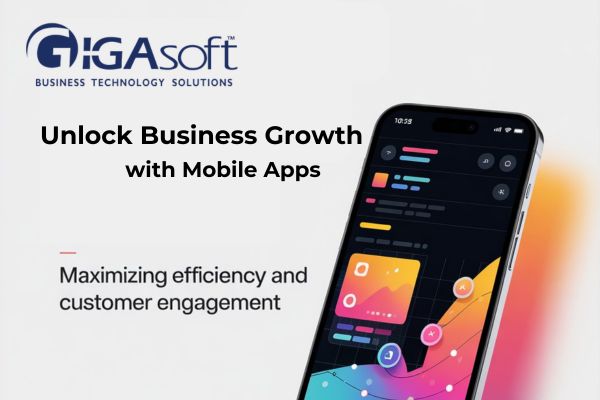Winning Content Marketing Plan and Tools 2025
Introduction
Content marketing is the workhorse of online successes in today's accelerated digital age. But what is content marketing? It's a systemic process aimed at generating and distributing valuable, relevant, and consistent content to attract and retain a clearly defined audience — ultimately driving profitable customer action.
With constantly changing digital channels and changing consumer behavior, content marketing is more important than ever. It builds brand awareness, fosters customer relationships, and increases search engine visibility through quality content. Whether you're a new startup or an established company, having a defined content marketing strategy can make a big difference in your online growth.
In this blog, we will walk you through creating a successful content marketing plan, selecting the best content creation services, leveraging the best content marketing tools, and incorporating SEO into your strategy. We will also discuss content marketing for eCommerce and how to create a strong content marketing funnel for long-term success.
What is a Content Marketing Strategy?
A content marketing strategy is a master plan detailing how a company will leverage content to attract, engage, and convert its audience. It's not about generating content—it's about generating the right content for a specific purpose that supports business objectives.
The importance of a solid content marketing strategy lies in its ability to guide your efforts, maintain consistency, and ensure that every piece of content serves a specific function in the buyer’s journey. Without a strategy, content efforts can become scattered and ineffective.
An effective content marketing plan includes several key components:
- Audience research to understand needs and preferences
- Goal setting to align content with business objectives
- A content calendar for consistent publishing
- Content types and channels defined
- SEO and analytics focus to track success
In combination, a content marketing plan and strategy can aid in establishing trust, traffic, and conversions.
How to Build a Result-Driven Content Marketing Plan
Creating an effective content marketing strategy begins with establishing clear, quantifiable goals. Start by creating SMART goals—Specific, Measurable, Achievable, Relevant, and Time-bound. These goals keep your content marketing strategy focused on business results, whether it's driving traffic, creating leads, or driving sales.
Second, pay attention to your target audience and creating in-depth buyer personas. Knowing your audience's demographics, pain points, and interests aids in customizing your content creation efforts to serve their needs at every step of the content marketing funnel—awareness, consideration, and decision.
Next, choose the most productive types of content and platforms. Blogs and infographics are great for explanation, while videos and podcasts are well-suited for storytelling. Select platforms—such as your site, social media, or email marketing—where your audience hangs out and how they like to receive content.
A clear content marketing plan is your map, leading repeat messaging, interaction, and measurable outcomes.
Essential Content Creation Services for Businesses
Value of Professional Content Creation
- Establishes brand credibility and authority
- Connects your audience with important and relevant information
- Navigates organic traffic via SEO-optimized content
- Operates at every point of the content marketing funnel
Content Types to Incorporate in Your Plan
- Blog posts – Enhance SEO and demonstrate expertise
- Videos – Grab attention and increase engagement
- Infographics – Visualize complex data
- Social media posts – Drive live interaction and exposur
- Email content – Nurture leads and retain customers
Advantages of Outsourcing to Content Production Services
- Access to experienced writers, designers, and strategists
- Regular, high-quality content production
- Saves time and internal resource
- Keeps your content marketing plan on track
- SEO-optimized content designed for results
- Scalable solutions for increasing content demands
Outsourcing content production services has the potential to raise your brand's voice and simplify your content marketing strategy for optimal effectiveness.
Top Content Marketing Tools in 2025
Content Planning Tools
- Trello – Plan and track content creation using boards and lists
- Notion – Work and keep content plans, ideas, and assets in one place
- Airtable – Track content calendars, deadlines, and workflows
SEO & Keyword Research Tools
- SEMrush – Discover top-ranking keywords, analyze competitors, and monitor performance
- Ahrefs – Conduct keyword research, backlink analysis, and on-page SEO audits
- Ubersuggest – Get keyword suggestions and track SEO performance with in-depth reports
Analytics & Performance Tracking Tools (LSI: content marketing tools)
- Google Analytics – Track website traffic, user activity, and conversion rates
- HubSpot – Monitor inbound marketing performance, such as blog performance and lead generation
- Moz – Track rankings, backlinks, and overall SEO performance
These content marketing tools assist in streamlining your content marketing strategy, optimizing your SEO campaigns, and measuring the success of your campaigns.
Content Marketing SEO: How to Optimize Your Content
On-Page SEO
- Keyword use – Use target keywords tactically in headings, subheadings, and the content
- Meta tags – Write enticing title tags and meta descriptions for enhanced click-through rates
- Internal linking – Link to pertinent pages or blog articles within your website for enhanced navigation and SEO
Off-Page SEO
- Backlinks – Obtain high-quality backlinks from credible sources to boost domain authority
- Social sharing – Share content on social media websites to get traffic and raise awareness
- Guest blogging – Write for authoritative blogs within your niche to generate backlinks and brand visibility
Leverage SEO to Fuel Your Content Strategy
- Weave SEO best practices into your content marketing strategy for increased search engine visibility
- Make sure content is optimized for both user experience and search engine spiders
- Update older posts regularly with new data and specific keywords to preserve SEO rankings
- With effective content marketing SEO strategies in place, you improve both your content's visibility and its power to turn website visitors into buyers.
Content Marketing for eCommerce
Why Content Marketing is Essential for eCommerce Sites
- Builds brand awareness – Engages potential customers and keeps your brand top-of-mind
- Improves SEO – Drives organic traffic through well-optimized content, boosting product visibility
- Increases customer trust – Establishes credibility with informative and valuable content
- Nurtures customer relationships – Provides continuous engagement through blogs, videos, and social posts
- Drives conversions – Educates customers about your products, leading to higher sales and repeat purchases
By integrating a robust content marketing strategy into your eCommerce site, you develop an engaging and informative experience that drives sales and fosters long-term customer loyalty.
Understanding the Content Marketing Funnel
Awareness Stage
- Objective: Acquire prospective buyers who are newly considering a problem or need
- Content Type: Blog articles, social media posts, infographics, and videos to educate and create awareness
- Objective: Grab attention and create interest in your company or sector
Consideration Stage
- Objective: Engage leads who are considering solutions and weighing options
- Content Type: Ebooks, case studies, webinars, product comparison guides, and more in-depth blog articles
- Purpose: Deliver useful, solution-focused content that highlights your expertise and leads prospects to select your brand
Decision Stage
- Objective: Convert leads into customers by assisting them in making a purchase decision
- Content Type: Product demos, testimonials, success stories, free trials, and special offers
- Purpose: Make the final call to buy by highlighting your product's value and offering clear calls-to-action
Creating Content for Each Stage of the Funnel (LSI: content marketing funnel)
- Customize your content to the particular requirements of each stage, so that it speaks to the audience at that moment in their process
- Apply SEO techniques to maximize content for findability at every stage of the funnel
- Track performance and refine content strategy according to how effectively it propels prospects through the funnel
- A content marketing funnel strategy guides prospects through the decision-making process, from awareness to conversion.
Conclusion
To succeed in content marketing, it’s essential to implement a well-rounded content marketing strategy that aligns with your business goals. From creating a content marketing plan to using the right content creation services, every step contributes to driving traffic, building trust, and boosting conversions.
Key strategies and tools include:
- Setting SMART goals and understanding your target audience
- Using content marketing software such as SEMrush, Trello, and Google Analytics to plan, produce, and measure content
- Using SEO best practices to optimize your content both on-page and off-page
- Customizing content according to various stages of the content marketing funnel from awareness to decision-making
Keep in mind, ongoing optimization is key. The online environment constantly changes, so continually check and refresh your content, SEO tactics, and technology to remain competitive. Ongoing analysis and adjustment will maintain your content marketing efforts efficient and bring long-term success.


-(3).jpg)

.jpg)

